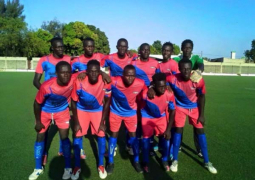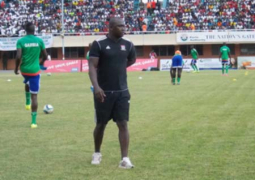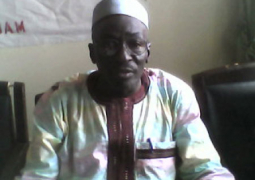The Director of Natural Resource Consulting (NACO), Kanimang Camara, has called on the collective effort of people in the proper management of our environment, saying sustainable land management is recognised as a potential foundation of poverty reduction and sustainable development.
He made this statement while delivering his welcome remarks at the opening of a two-day validation forum held at Sanyang Nature Camp recently.
He stated that in many cases, achieving sustainable land management or correcting unsustainable land use practices requires broad-based reforms, policy changes that reach beyond the scope of traditional environmental policy-making, as well as target intervention that yield immediate results.
“Despite the breadth and depth of the challenge faced by the programme, sustainable land management remains insufficient”. He added that the issue of resource mobilization for sustainable land management has been recognized as one of the major hurdles to achieving policy goals in The Gambia.
Mr Camara asserted that the country has been faced with sectoral policies, plans and programmes, including National Action Plan NAPs under the United Nations to combat Desertification UNCCD providing a legal framework for cooperation among development partners in those countries experiencing serious drought and desertification.
According to him, NACO and FAO representing the African Union Commission signed a national consultancy contract to support in the development of the National Action Plan for the implementation of the Great Green Wall for the
“The overall objective of the consultancy is to undertake a Stocktaking and Diagnostics analysis on Sustainable Land Management (SLM) constraints and opportunities, and to propose a national strategy for the implementation of the GGWSSI, taking into account identified priorities in the NAP-CCD and the CAADP national investment plan, adding that the study aims also at providing guidance on how to promote national ownership of the GGWSSI implementation and alignment of development partners to national priorities”.
Mr Camara further stated that the NACO team used Participatory Learning Process (PLA) by actively engaging sector key stakeholders/participants in Stocktaking and Diagnostics analysis on Sustainable Land Management (SLM).
“The participatory nature of the consultations encouraged key stakeholders to take ownership and responsibility of the stock-taking exercise”.According to Mr Camara, The Gambia has made visible progress in addressing the causes of land degradation and desertification.
In many fields, the country has developed efficient tools to manage its fragile resource base.
He further stated that the forestry department has been in the forefront with providing a legal base for protecting the remaining forests through community participation.
He also lamented that the Gambia Environmental Action Plan has greatly contributed to institutional strengthening and provision of coordination mechanisms.
The National Environmental Agency has recently developed detailed producers, guidelines and regulations for conducting Environmental Impact Assessment in The Gambia.
Read Other Articles In Article (Archive)




